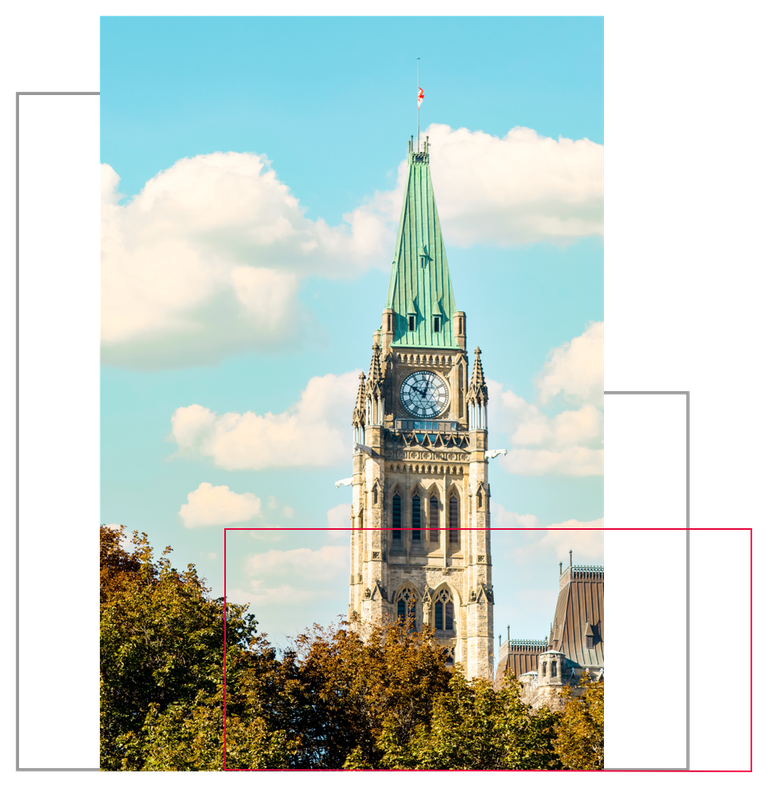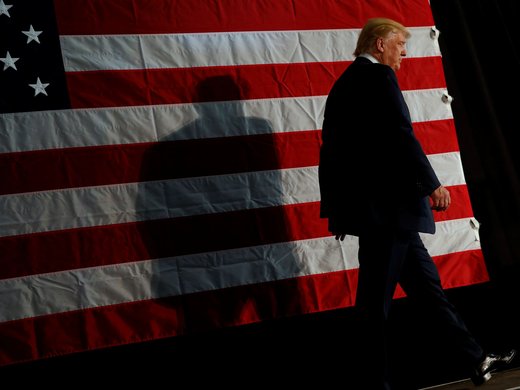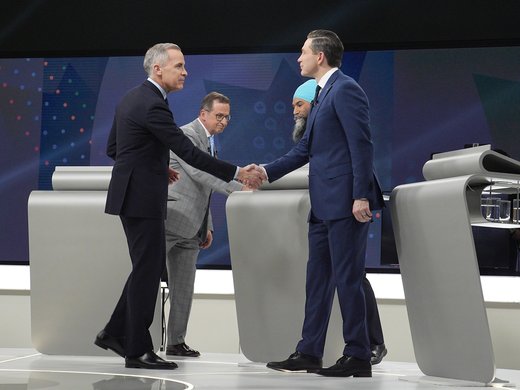Contemporary practitioners of Canadian statecraft face no shortage of overwhelming challenges: a shift in global power from West to East; the stress testing of democratic institutions; a fracturing multilateral system; a deteriorating security landscape at home and abroad; and a digital transformation that is touching every facet of life. In this era of increasing global uncertainty, they require not only the acuity of the traditional diplomat, but also a degree of intellectual flexibility that can be a challenge to maintain in these polarizing times.
Such flexibility is best nurtured through dialogue and debate, but in recent years, as political scientists Brian Bow and Andrea Lane (2021, 4) have argued, discussions are often missing perspective, which they define as “a broad view of Canadian foreign policy across many issue areas and over time.”
For much of the twentieth century, such a view was offered consistently by John Wendell Holmes (Chapnick 2009). Holmes won his university’s gold medal in history as an undergraduate in 1932 and completed a master’s degree at the University of Toronto the following year. He spent a summer in Trois-Pistoles, Quebec, immersed in francophone culture, and then taught English for five years at a progressive boarding school in Pickering, Ontario.
When the Second World War derailed his Ph.D. aspirations at the University of London, he joined the Canadian Institute of International Affairs (CIIA) (today’s Canadian International Council), quickly rose to the position of national secretary and was soon recruited into the Department of External Affairs. Holmes’s ascent through the diplomatic ranks was similarly brisk. Soon, he was drafting speeches for Prime Minister William Lyon Mackenzie King and coordinating Canada’s post-hostilities planning process.
He retired as a senior assistant deputy minister in 1960 and returned to the CIIA, this time as its president. He began teaching Canadian foreign policy, first to graduate students at the University of Toronto, and then through the lens of international organization to undergraduates at York University’s Glendon College. He discussed Canada’s place in the world in the popular press, with national and international audiences, and with student groups. He produced an overwhelming cannon of books, academic essays and popular commentaries, including his magisterial, two-volume The Shaping of Peace: Canada and the Search for World Order (1979, 1982), from which this introduction draws its title. His approach was historical, yet practical, forever emphasizing the importance of context, compromise and clear communication.
When Holmes retired from the CIIA, its members created a library fund in his honour. After his passing in 1988, that fund received further donations. Ever since, the John Holmes trustees have been tasked with managing the money in conjunction with, first, the CIIA and, more recently, CIGI.
CIGI and the trustees present here an innovative new project designed in a manner that is faithful to Holmes’s intellectual legacy: a commissioned collection of essays on Canadian foreign policy that brings together the views of historians and practitioners in a digital series, which will also be available as a print version in both English and French.
With Aaron Shull representing CIGI and Adam Chapnick representing the trustees, we have identified six contemporary themes relevant to Canada and its future: the geopolitical context; the deterioration of the international system of global governance; threats to liberal democracy; the evolution of the international trade, investment and development regimes; the emergence of a digital age; and national and international insecurity.
Six historians at the leading edge of Canadian and international scholarship and six practitioners with significant national and international experience were recruited to contribute to this series. Each historian was asked to craft an essay exploring the background to a single theme and each practitioner was asked to respond with a view to the future.
The essays that follow are the result.
Michael Cotey Morgan launches the series by reminding us of one of the great paradoxes of Canadian foreign policy history: inasmuch as Ottawa has asserted independent control over its external affairs, it has nonetheless remained reliant on its great power partnerships for effective engagement. “Officials in Ottawa could choose the tactics,” he writes, “but other governments continued to set the strategy.” The history of Canadian foreign policy is a story of “reconciling the limits of power with the imperative of independence.”
Today’s multipolar world is more complicated, argues Rohinton P. Medhora. Canadian policy is no longer shaped primarily by its partnerships with, first, Great Britain and, later, the United States, but by an international system of rules and laws that it did much to create. Contemporary challenges such as climate change and the impact of digital technologies and data flows cannot be managed by Canada and its allies alone. Nonetheless, Medhora’s policy prescription reveals echoes of Morgan’s thoughts: “Institution building and global governance require commitment, credibility, and all the other hard and soft resources that underpin coalition building” — an idea with which Holmes would have mightily agreed.
Contemporary challenges such as climate change and the impact of digital technologies and data flows cannot be managed by Canada and its allies alone.
But “multilateralism, it seems, is in crisis,” opens Brendan Kelly in his historical account of Canadian engagement in the international institutions of global governance. Those institutions — the United Nations, the International Monetary Fund, the World Bank, the North Atlantic Treaty Organization, the Commonwealth, la Francophonie, the Group of Seven (G7) and the Group of Twenty (G20), the Asia-Pacific Economic Cooperation forum, the Organization of American States and the World Trade Organization — traditionally provided Ottawa with vehicles to shape the rules of the international game in a manner that advanced the national interest. Kelly argues convincingly that, no matter the strain facing contemporary multilateralism, Canadians must continue to commit to it.
Rector of United Nations University David Malone is critical of the trajectory of Canada’s most recent multilateral efforts, citing two consecutive losses of elections to the United Nations Security Council as evidence of a country whose “trend line raises more questions than comforting answers.” He also yearns for greater stability among Canada’s foreign policy leadership. “Personality, competence and experience all count in ministerial functions of an international nature. Knowing one’s counterparts, and appreciating as many of them as possible, an ability to seize the gist of complex files often previously completely unknown to new appointees, and a reputation for reliability,” are assets that are hard to develop when the average tenure of the 12 most recent Canadian foreign ministers has been less than two years.1 But stability at home is more necessary than ever in a world where “international relations have deteriorated considerably” ever since the rise of illiberal leaders in China and Russia.
If Malone is concerned by the state of contemporary global affairs, Susan Colbourn reminds us that the rise of authoritarian regimes is hardly new. Nor are the dilemmas that they pose to contemporary practitioners. Indeed, she writes, authoritarian states “provided a sort of organizing logic that framed Canada’s foreign policy and the central objectives thereof for much of the twentieth century.” Viewed through such a lens, much of Canada’s international relations history can be understood as an effort to balance the perennial Canadian desire to promote and defend the tenets of liberal democracy and human rights with the need for economic growth, no matter its origins. Colbourn’s essay points to some of the paradoxes that formed a regular part of Holmes’s writing. Consider the following: “Canadians defined their wartime efforts as nothing short of the defence of freedoms and liberties in a democratic system, and yet, to do so, also accommodated themselves to policies that inhibited those freedoms.” She also counsels humility: Ottawa has a long history of principled, liberal foreign policy rhetoric and less principled commercial activities.
Long-time Canadian diplomat Leigh Sarty suggests that the most significant change to Canada’s international realm in recent years is less the authoritarians themselves than “a southern neighbour no longer inclined or able to exercise the leadership on which Canadian foreign policy has traditionally relied.” Like Malone, he advocates greater diplomatic dexterity and notes “the importance of seeing the world as it is, rather than as we believe or would wish it to be.” Sarty is confident that liberal democracy offers the world more than Russia or China ever could but is concerned that Canadians have yet to harness the inherent strengths of the system in support of the national interest.
Part of the solution will have to include a coherent trade, investment and development policy. Jennifer Bonder takes us back to the first meeting of what ultimately became the G7. The organization was formed to manage the challenge of what she calls “globalization without governance.” As she writes so eloquently, “economic summitry reoriented Western alliances to new purposes and policy coordination promised to bolster economic and social stability.” Historically, when liberal democracies have cooperated economically, they have been able to posture more effectively on the world stage.
A former senior trade advisor to Canada’s twenty-second prime minister, Meredith Lilly examines how the G7 has evolved since its genesis in the 1970s. No longer are members focused exclusively on trade and the economy, and no longer is an American president bending over backwards to integrate Canada into its most critical geoeconomic partnerships. She agrees with Malone that Ottawa must pay more attention to the Indo-Pacific but is critical of a national tendency to “downplay the positive spillover effects of being America’s neighbour, even during challenging periods.” Lilly sees a need for both an independent Canadian trade policy and a strong bilateral relationship with its most significant security partner.
Holmes was one of Canada’s first foreign policy analysts to extend his guise beyond traditional measures of statecraft. Heidi Tworek’s essay on the history of Canadian diplomatic engagement in the realms of international communication and aviation technologies would therefore have pleased him deeply. Tworek demonstrates that Ottawa’s post-Second World War response in the communications realm — a political effort to defend its own interests — was profoundly different than in the aviation world, where it chose a more traditional middle-power route. Her point, with which Holmes would have agreed, is that foreign policy is always about choices. No matter Canada’s affiliation or alliance, its leadership must make decisions for themselves.
The Government of Canada’s former director of international telecommunications policy, Bill Graham, is no stranger to the challenges that Tworek describes. He sees more continuity than change in Ottawa’s successful efforts to navigate the future of communications governance. What has changed is the world of telecommunications regulation, where governments have ceded much of their prior control to the private sector and civil society. Ottawa has generally welcomed this more inclusive approach, even if it has dramatically increased the complexity of future foreign policy challenges.
Timothy Andrews Sayle picks up on Graham’s optimism. Canadian foreign policy has always required Ottawa to manage international relations within an evolving world order. Trade has always been about more than just economic gains. Inasmuch as technological change has disrupted the international system, it has also offered Canada significant opportunities for growth. And “political division and the seeds of dissolution,” rather than invasion or annexation, have posed the greatest threat to Canadian national and international security. “If there is a pattern to Canada’s national security history,” Sayle concludes, “it is that, for more than 150 years, the viability and integrity of the state has been preserved first and foremost by ensuring that Canadians remain united.”
Laurence Deschamps-Laporte draws on her recent experience advising three Canadian foreign ministers to reinforce Sayle’s emphasis on the importance of national unity. She calls for greater cross-partisan cooperation in the national security realm by highlighting the benefits of a broad national consensus on recent policy toward Ukraine and North American Free Trade Agreement renegotiation. Canada is stronger when it enables the official opposition, provincial authorities and civil society to contribute to the foreign policy discourse. Today, she concludes, we must guard against political divisions at home that risk undermining the strength of Canada’s posture abroad.
Holmes once described the Canadian position in The Atlantic Community Quarterly as an “admixture of pragmatism, scepticism, heresy, and what I might call the disciplined irresponsibility which is the privilege and the responsibility of lesser powers in an alliance” (Holmes 1964–1965, 528). Together, these essays capture the spirit of cautious, humble optimism. Geography has gifted Canadians with a fortunate position in the international community. Successive generations of policy practitioners have leveraged that geography and its strategic implications to help shape a liberal democratic international order consistent with the national interest and inimical to the forces of extremism and authoritarianism that seek to threaten its existence. Although Holmes might not have recognized the post-Cold War order described by Medhora, or the contemporary digital communications realm discussed by Graham, he would certainly have been familiar with the perennial challenges of balancing bilateral relations with the United States with Canada’s multilateral commitments in both trade and security; the persistent value of national and international statecraft; and the importance of political cooperation to Canada’s foreign policy posture. And he would have welcomed the contribution of leading Canadian historians to conversations about these issues. We hope that you do as well.



